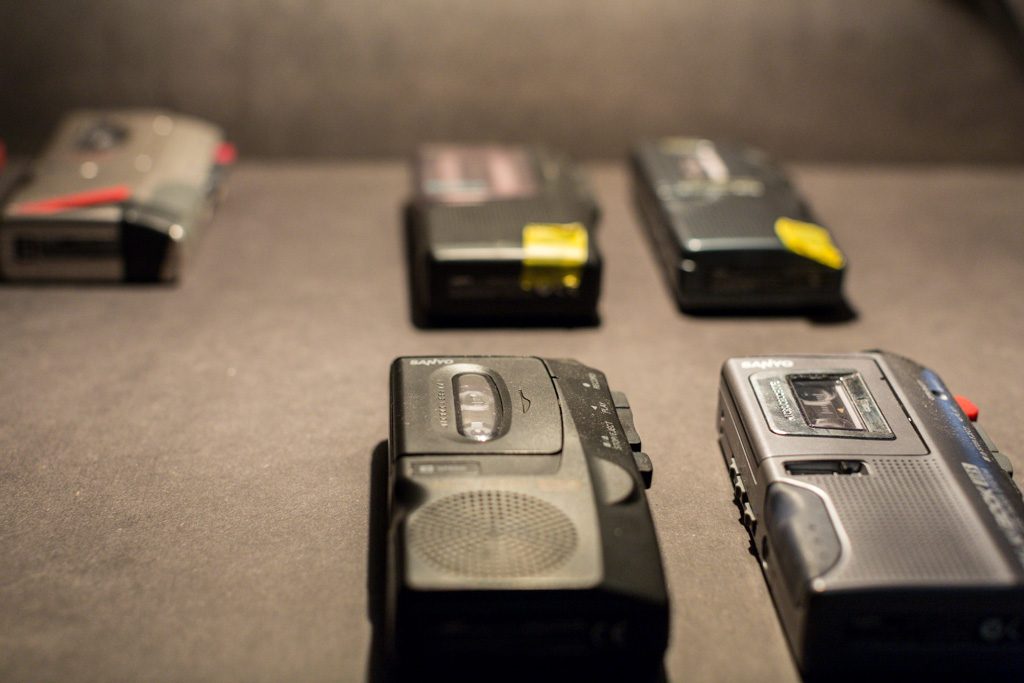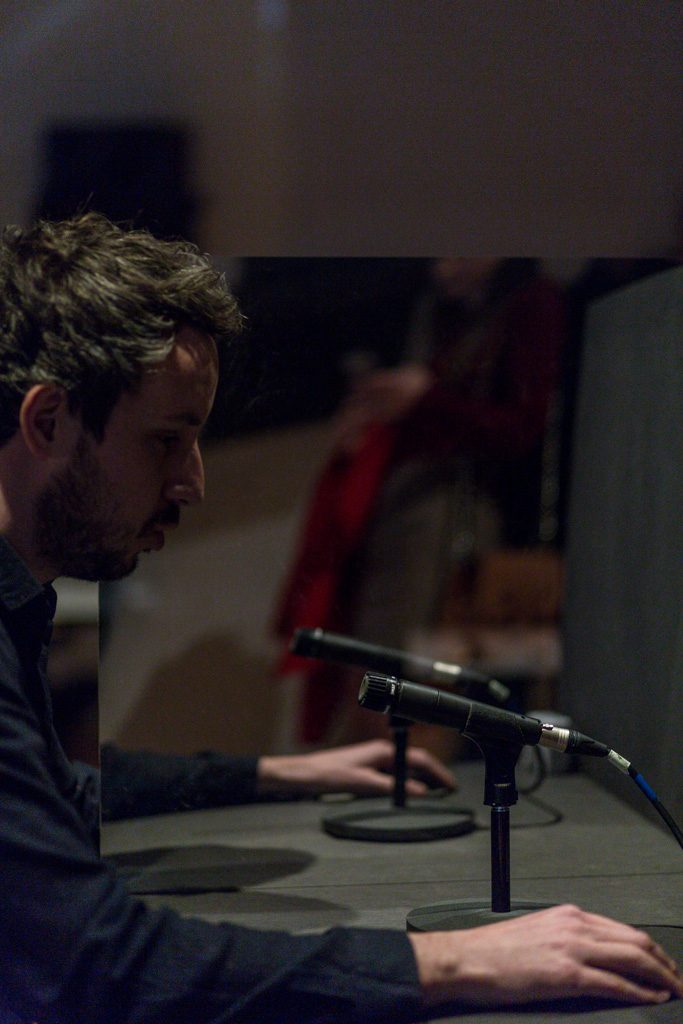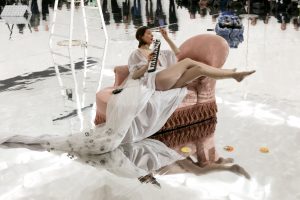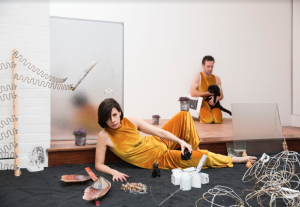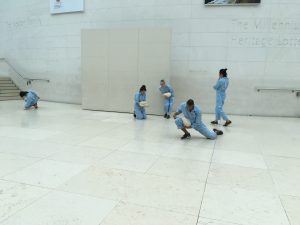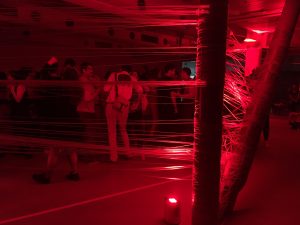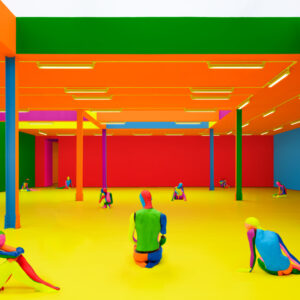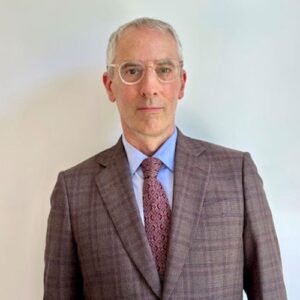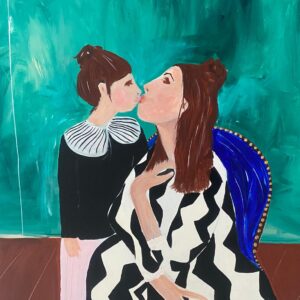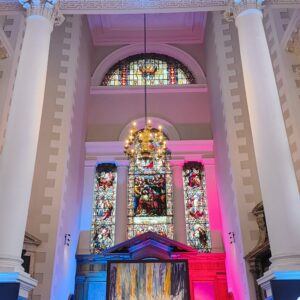Sam Belinfante © Hydra Dewachi : Camden Arts Centre
Sam Belinfante’s practice incorporates filmmaking, photography, sound, performance and curating. He recently won the Hayward Touring Curatorial Open. Entitled ‘Listening’, the exhibition explored the nature of listening and the sonic in contemporary art practice. In response this year’s theme, ‘The Future Perfect’, Belinfante is collaborating with Elaine Mitchener at this year’s Block Universe. The work, ‘Feedback’ examines the relationship between sound, language and technology. The heart of the evening’s performances is an improvisation between Mitchener and Belinfante.
I interviewed Sam Belinfante to fine out more about the performance and how he sees society’s relationship with technology
The festival’s theme is The Future Perfect, how did you interpret this?
I am drawn to the seemingly paradoxical nature of the theme. I read it as a kind of oxymoron. Neither the progression of time or technology will make things better, more stable or complete. I suppose I’m interested in asking questions of technology (including human technologies such those deployed as we look or listen ocular, cochlear etc.) knowing full well that the ‘answers’ are unlikely to be elucidating! Maybe it’s about allowing the system to expose its own limitations?
How do you think technology has altered the way we perceive sound and language?
I like to think of ‘the voice’ as a human technology, maybe the first and most fundamental technology; indeed we judge animals as not having a voice, a process that creates a degree of separation from the human. By passing the voice through other technologies we can learn more about its nature as something that is in fact always already processed and external to the body. The voice is also something that exists beyond, or outside of language; things such as babble and involuntary sounds undermine language and sense in really interesting ways.
How are you working with Elaine Mitchener. What has the process been like?
I first worked with Elaine for the film Focus in 2012, a work which tackled many of the difficulties of collaboration and interdisciplinarity, I struggled with the small hand wound 16mm camera as she grappled with her own vocal apparatus – we were both similarly ‘exposed’. The new work Feedback that we are developing at the Wellcome Trust (as part of THIS IS A VOICE) hones in to the peculiar, though familiar structures that emerge at the site of a one-to-one meeting; ranging from interview-type formations to the more intensive arrangements of psychoanalysis and interrogation. Through the relentless repetition of these situations we hope to upset some of the hierarchies and meanings wrapped up in them.
Elaine Mitchener is also presenting a movement from her new work ‘Industrialising Intimacy’. Can you explain what the work is about?
Elaine’s new work resonated strongly with what I am exploring in my work and to the Future Perfect Theme. I like the way that the audience is implicated in the work in an extremely intimate and quasi-voyeuristic way. Feedback plays with many of the same issues
Here’s a section from the website:
Industrialising Intimacy is the fruit of this unique collaboration, using vocal improvisation, movement and sound to create an original work of contemporary music theatre. Wavering between observer and partaker, the audience is invited to share Mitchener’s exploration of the many facets of intimacy. The performer investigates the loss of privacy in our society versus the strength of true intimacy in the search for one’s centeredness.
Sam Belinfante © Hydra Dewachi : Camden Arts Centre
The relationship between humans and technology is not static. How do you see that relationship changing in the future?
I think an interesting area is the idea of prosthesis – how technology is extending and replacing our bodies. This is not a new idea but one that is changing rapidly in relationship to technology. I think, however, that this process will only serve to reveal how fragmented and involuntary our bodies already are/were.
Many technological innovations, especially personal devices, cater to the human ear as something that is always secondary to the eye. Do you think that technologically companies will continue to do so?
This is connected to language and philosophy, all of which is extremely centered on visual experience and phenomenology. “Seeing is believing”! We cannot just swing the other way though – we need to really think about what it is to ‘think’ with/ through sound.
What’s next for you after Block Universe? Is there anything upcoming that you can tell me about?
I am performing again with Elaine at Wysing Arts Festival and with the percussionist Mark Sanders at Supernormal Festival.
‘Feedback’ will take place on tomorrow Friday 3rd June at 8pm at Kachette. Tickets from £5. For more info go here
